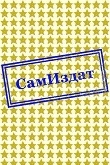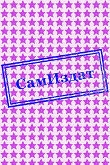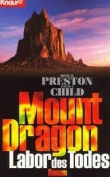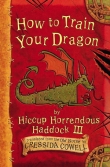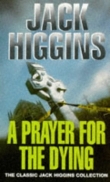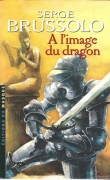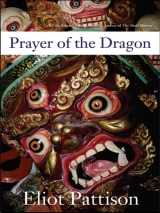
Текст книги "Prayer of the Dragon"
Автор книги: Eliot Pattison
Жанр:
Полицейские детективы
сообщить о нарушении
Текущая страница: 13 (всего у книги 24 страниц)
“Before you learn to fly,” Shan observed, “you must learn to fear.”
Gao continued to study the young birds of prey. “We can take a day or two and delay sending Hostene away,” he said. “It would give me time to get a doctor to look at him. Neither of us wants him to die while he is on this mountain.”
“If he dies on this mountain,” Shan replied, “it will not be from cancer.”
Gao shrugged and stepped toward his sand garden below. “For now we shall let sleeping Americans lie.”
But Shan couldn’t let things rest. He found the Navajo’s pack and recharged the battery of the video camera. He had spent a quarter hour reviewing Abigail’s videos when Thomas appeared from the kitchen, carrying an empty basket, wearing a black linen shirt. “Let’s discuss the evidence,” he said in a conspiratorial whisper. “After I finish my chores,” he added.
Shan hurried to Hostene’s side and shook him, gesturing for him to keep silent. He lifted the camera and pointed to a long silver object lying on a rock. “Whose is that?” he asked in a whisper.
“Tashi’s,” Hostene said with a yawn. “His pen case. He kept little drawings and things in it. You woke me up for that?”
“No,” Shan replied. “You must come with me to the granary,” he said urgently.
Hostene stretched. “That old stone ruin? Why?”
“Because of a ghost in the motion detectors,” Shan said. “And because Thomas put on a clean shirt to go get groceries.”
Chapter Seven
They approached the granary as they had before, running together from rock to rock, using the shadows for cover until they reached the plank door of the low stone structure. If Gao happened to open the monitoring program, he might assume the movement on the screen was caused by Thomas. Shan glanced at the padlock that hung open from the door’s hasp and peered inside. He saw a second door beyond a stack of rice and onion sacks, on top of which sat a small lantern. There was no sign of Thomas. He withdrew, whispered to Hostene, then both men slipped around the side of the structure.
Thomas emerged fifteen minutes later, setting his basket, now filled with foodstuffs, on a rock in front of the door before he turned to fasten the padlock.
“Did you know the miners tried to kill us yesterday?” Shan asked as he came around the corner.
For a moment Thomas looked as if he was going to attack Shan. Then he shrugged. “That Bing,” the youth said, “he tells people that they should still consider him to be Public Security, but without all the red tape.”
“They’re not hard to beat, Thomas,” Shan observed, pointing to the nearest motion detector. “By shifting each a quarter turn you could create a corridor where they are blind. Or if you set a lighted candle in front of one, you blind that sensor.”
Thomas cast an uncertain glance toward Shan. Then, acting on Shan’s suggestion, he began turning the little metal box. Shan sensed Hostene behind him, going inside. Thomas paused, as if he too had sensed something. They heard a low moan from within the building.
Thomas sagged, and for a moment looked as if he was about to flee. “You tricked me,” he said, wounded.
The sounds from inside turned to muffled cries of joy, then a low, feminine sobbing.
Thomas lowered himself onto a rock. “You wouldn’t believe what she knows about rock and roll,” he said. “She drives a car with satellite radio. It receives two hundred fifty stations. She says when I finish in Beijing she’ll help me gain admission to a graduate program in America.”
Shan gave Hostene five more minutes. Inside, Abigail Natay was crying on her uncle’s shoulder. She scrubbed away her tears with the sleeve of her denim shirt and extended a hand to Shan, shyly smiling. “Some of the old Tibetans have told me there are things too important to be put into mere words,” she said in a voice husky with emotion. “I guess one of those would be how I feel about your bringing my uncle back from the dead.”
A remarkable opening from a stranger, Shan thought. But she wasn’t a stranger, he reminded himself. She was the familiar image on the video camera screen. He self-consciously accepted her hand. “The old Tibetans would say he still has a destiny in this incarnation,” he said.
Abigail replied, “Your mountain is the most beautiful and terrifying place I have ever known.”
“One thing I have not been able to figure out,” Shan replied, “is just whose mountain this is.” He almost added that sometimes it seemed that if he could only solve that mystery all the others would fall into place.
Hostene and his niece began speaking, sometimes reverting to their native tongue. Abigail showed her uncle the cozy nest of blankets among the stores of supplies where Thomas had hidden her in the inner chamber. A blue nylon backpack lying open near the door revealed a small digital camera, a plastic bag of toiletries, and half a dozen ketaan sticks.
Thomas, downcast and silent, ventured into the granary and settled onto a wooden crate near Shan. “You tricked me,” he repeated.
“ Youtricked all of us,” Shan rejoined.
Thomas clasped his hands together and stared at them.
Strangely, Shan felt sorry for the youth. “I still need to review your investigation notes,” he ventured, “and I still need to hear how you met her, and when. Was it with Rapaki?”
“I take things to him. Uncle Heinz thinks he’s a good-luck charm, like when a singing bird nests in your eaves. We communicate in pantomime, since I know no Tibetan.”
Shan paused. “But you speak English with Abigail?”
“Sure. Anyway, I saw him a month ago and pulled out a box of sweet biscuits to give him. He started waving in another direction, singing one of his songs. He was showing me Abigail coming up the trail. Like some kind of goddess. Who would have thought of seeing someone like her on this mountain?”
“Then you’d met her before the murders?”
Thomas nodded. “But she won’t speak about them. Maybe knowing her uncle is alive will make a difference.”
Shan asked, “Did you see her this morning?”
“Early this morning, on the way to Little Moscow.”
“You ran away from there to warn her?”
The youth nodded again. “You made sure all of the miners knew she was still alive,” Thomas pointed out.
Shan studied him, worried now. “You mean you’re convinced the killer was there, among the miners?”
“He must be,” Thomas said. “At least that’s my hypothesis. I need a credible theory or my project is a failure.”
Tears starting flowing down Abigail’s cheek as she uttered two names: Tashi and Dr. Ma. She leaned against Hostene’s shoulder again, then gasped as she gazed past Shan.
A figure had materialized in the doorway. Kohler’s hunting rifle was cradled in one of Gao’s arms, and he held one of the small radio units he used to summon soldiers from below. His face, which had at first displayed a mixture of emotions, now showed cold anger. As he neared his nephew, Abigail stepped between Gao and Thomas. “I asked him to hide me,” she said in a level voice in English. “He said he had a safe place where I could rest for a while. I said I would go only if I could remain invisible. He was trying to help me, to protect me.”
Gao studied the Navajo woman in silence, taking in her heavy hiking boots, her scuffed blue jeans, the belt pack from which ink pens protruded, the turquoise pendant hanging from her neck on a silver chain, her long braided hair, her dark, intelligent eyes, full of challenge. “Invisible?”
“I have to finish my work, for which I must stay on the western slope without being noticed.”
Gao looked past the American woman to his nephew. “You deceived us, Thomas,” he said. “You have stolen from me and from the government, which pays for everything here. For what, to be a black marketeer? To disgrace us and never be allowed back to the university?”
Abigail looked from Gao to Thomas, her quick, bright eyes taking everything in. “It was for me,” she declared. “The murderer took all my food supplies. I will gladly pay you back.”
Gao’s steady gaze shifted from his nephew to Abigail. “You misunderstand me. I refer to the goods he has been sellingon the other side,” he said. Thomas cast a confused glance at Shan then, understanding, shut his eyes. There was only one way Gao could have found this out. Thomas’s other uncle had told him. Gao, still gazing at the Navajo woman, suddenly became self-conscious about the rifle. He lowered it, putting it behind him. “We have not been properly introduced, Miss Natay.”
“You are Gao Hu Bo, the most famous phantom physicist on the planet.”
Gao seemed unable to restrain his lips from momentarily curling upward. He glanced back at Thomas. “This must stop,” he said to the youth. “Everything. Keep up the playacting and I will arrange for a sergeant the size of a yak to escort you back to Beijing.” He bowed slightly to Abigail and Hostene. “If it is not inconvenient we will dine in thirty minutes. Enough time for a hot shower if you like,” he added to Abigail. Then, still awkwardly keeping the gun out of sight, he gestured Thomas and Shan to the door.
Abigail was radiant when she walked into the candlelit dining room, greeting her uncle with another long embrace and affectionate words in their tribal tongue, smiling at Shan, then asking a surprised Gao where the altar had been in the old dzong before it was converted since, as all Tibetans knew, such places had been garrisoned by warrior monks. She guided the conversation as if she were a hostess to old friends, expressing her regret at not meeting Thomas’s German uncle, entrancing Gao by describing a workshop she had once attended on the cultural aspects of space travel-Russians always insisted on bringing some form of borscht into space, Americans always wanted more privacy in the living quarters. She looked forward to seeing what the Chinese would introduce to the mélange. Gao was fascinated by the theories behind Abigail’s work on the mountain, though quick to point out what a simple thing it should be to compare the writings, the social structure, the dress, and even architecture of the two peoples.
“By definition, that is impossible,” Abigail explained. “The Tibetans became a sedentary civilization long ago. For thousands of years my people were nomads, until only two centuries ago. What I am trying to reconstruct is the prototype, the people who existed before the split, then postulate what would happen once they split, one developing printing, colleges, the substantial social structure that is possible in a fixed and fertile geography while the other, nomadic for centuries, was unable to develop printed books or even a written language, unable to develop a substantial social structure beyond the family unit because they never stayed in one place long enough. It is as if a planet left the gravitational field of a solar system. How do you prove the lost planet once belonged to it?”
Gao seemed to be in his element, offering other analogies from the physical sciences, observing the coincidence that both peoples had settled on the highest plateaus of their respective continents.
“So you are building a model of the Tibetans ten or fifteen thousand years ago,” Shan recapitulated.
“Exactly. Professor Ma and I were developing one. The original people were fierce soldiers. They were deeply philosophical. They were resourceful, adapting to severe environments, and not just in a physical sense. They interacted with earth and sky in a primal way.”
“Spirit warriors,” Shan suggested.
Abigail nodded. “You begin to understand,” she said, and described the reasons she suspected the early Tibetans did not distinguish between physical and spiritual endurance.
Gao studied them both with an expression of curiosity, then excused himself for a moment, bringing back a small cardboard box. “I believe this belongs to you,” he told Abigail.
It was the golden beetle. Abigail, unable to contain her gratitude, grabbed Gao’s hand in both of hers and, as he blushed, pumped it up and down. She explained that it was a family heirloom, a protective charm made by a Spanish artisan for an ancestor who was one of her people’s holy men in the eighteenth century, handed down to his daughter and the first daughter of each generation thereafter. To daughters, because the Navajo were a matriarchal society and the corn beetle was a symbol of fertility.
As Thomas asked to examine the beetle Abigail praised him as demonstrating the intellectual energy of a great scientist in the making. “I have no doubt he saved my life,” she said.
“He’s a student, Miss Natay,” Gao said in a polite voice. “In China there are far too few universities of the first rank. If he engages in questionable conduct he will be banned. There are a thousand other qualified students waiting for his place.”
“She says she can help me to qualify for university in America,” Thomas blurted out.
Gao ignored his nephew. “Thomas has a great career ahead of him after he settles down. Heinz and I have conquered the mysteries of the earth. Thomas will conquer mysteries off the earth. I have decided to remove him from the temptations he has here. I am sending him to Beijing. I spoke to his parents this evening.”
The color drained from Thomas’s face as he stared at his uncle. “But you said you would give me another chance,” he protested.
“I reconsidered. I began to realize how many lies you must have told us. You stood in front of us and lied about Miss Natay going to Tashtul. Your uncle Heinz has been put to a lot of trouble to find her.”
“But it was to protect me,” Abigail said.
Gao ignored her. “Thomas has been crossing over the mountain frequently, deceiving us, knowing we forbid it, telling me he is looking at wildlife.”
Shan considered the words a moment. Gao must have spoken on the phone with Kohler, now in Tashtul. “Thomas could be useful here,” Shan interjected. “He is helping us discover the murderers of Tashi and Dr. Ma.”
“The truth stares you in the face.” Gao’s patience was wearing thin. “But you refuse to accept it because it is so mundane. The killers were miners. They are greedy, opportunistic creatures, rats that salivate as soon as a bell is rung. Was there ever any doubt as to what would become of wealthy strangers who stumbled into their lair? Every one of them is a criminal by definition. I am sorry, but the moment word spread that you were trespassers without protection, your party was doomed. Once they knew no one would miss you, no one would complain of your absence, your fate was sealed.”
“We’re not wealthy,” Hostene interjected.
“To people like these, all foreigners are wealthy. You became a target the moment you set foot on the mountain. Your companions should have known better, and they paid for the mistake with their lives. Americans are notorious for not taking no for an answer. But it’s finished. Go home. When you think of your tragedy in the future tell yourself it was an attack by wild animals. An accident of nature.”
A brittle silence fell over the table.
Shan, who had been looking down, felt Gao’s gaze.
“I see Inspector Shan disagrees,” Gao observed.
“What you say could be true,” Shan responded. “I don’t know. What I do know is that one thing connecting the acts of violence on this mountain has been the kora. It is like a common thread in a long bloody fabric.”
“That’s nonsense,” Gao said. “You’ve spent too many years locked up with old Tibetans.”
Shan gazed at Abigail as he continued. “Every killing has been at a station of the pilgrim path. You have been studying the path, trying to find its upper terminus, as has the hermit Rapaki for forty years. It’s like a three-way contest.”
“Three-way?” Hostene asked.
“Abigail, Rapaki, and the killer have been converging.”
Abigail stared at Shan, searching his face as if for an answer. Then she began making small talk like a good hostess, asking Thomas about his life in Beijing, about Chinese rock and roll.
Her uncle tossed the fragment of burned sweatshirt onto the table as Shan asked Abigail, “Did you meet a man named Bing?”
The American professor looked at her burned sweatshirt in confusion, then nodded. “Twice. The first time I found him sitting on a rock, watching me as I worked. Tashi came running up as if to protect me, but Bing seemed very polite, almost charming. They spoke for a few minutes and then Bing left.” She fingered the charred fabric. “This was left in our camp that night. The last night.”
“What did Tashi and Bing talk about?”
“I don’t know, I didn’t hear it all. The weather, the wolves. . Tashi told him I was Tibetan, from Lhasa. I don’t know if Bing believed him.”
“And about gold?”
“Of course not.”
“Did Tashi seem to know Bing already?”
Abigail hesitated. “Tashi was from the village. I expected him to know people here. He was paid to be our guide. That included guiding us around the people. We couldn’t afford to let anyone know what we were doing.”
Bing was not native to the mountain. He had only arrived the year before. And Tashi had been away for several years.
“You said twice,” Shan pointed out.
“I saw Bing again just a couple days ago. He was throwing things off a cliff when I came up the trail. He didn’t notice me at first.”
“What things?”
“They weren’t new. They may have been washed down one of the streams after a storm. It happens.” Abigail shrugged. “What do you do with them? It’s awkward. Most people simply want to be rid of them.”
Hostene leaned forward in his chair. “I don’t understand, Abigail.”
“Bones. I saw a tibia, a fibula, at least one femur.” She spoke the words with such ease it almost seemed she was speaking about the weather. It took a moment before she noticed that everyone else had stopped eating.
“Bones, Miss Natay?” Gao asked.
“Bones. Old bones. It’s to be expected. In my business I encounter them all the time. People have lived on this mountain for hundreds of years. He threw something else after the bones. I couldn’t see it clearly because I’d hidden behind a rock. He scared me a little. It was something he could toss with one hand. When he had finished he came down the trail so quickly he was in front of me before I realized it.”
“What did he do?”
“He hesitated, then came to shake my hand in a friendly way.
He seemed to be in a hurry. I spoke in Tibetan, only Tibetan, like the first time. He smiled and bowed. He looked at my pack, at my cameras, then he waved goodbye and trotted down the trail. A few minutes later I saw him on the slope below, riding one of those red mountain bikes.”
Shan asked Gao for the map Kohler had used, and Abigail pointed to each of the spots where she had seen Bing. One was near the old gold mine, the other near the ridge that the miners believed to be haunted.
“It will take a day to make arrangements,” Gao informed them as he poured tea for his guests at the end of the meal.
“Arrangements?” Shan asked.
“By tomorrow night we will have transport lined up. Professor Natay and her uncle will be taken by helicopter to a quiet border post whose commander is a friend of mine. They will leave the country without undergoing a lot of uncomfortable questions from Public Security. On its return the helicopter will pick up you and Thomas.”
Shan felt his stomach tighten.
“Thomas,” Gao continued, “will be taken to the airport in Lhasa for a flight to Beijing, with a soldier for his escort. The helicopter will stop at Drango village and soldiers will remove your friends from that man Chodron’s custody.” Gao folded the map and tucked it under his arm, then fixed Shan with a cool gaze. “Their orders will be to drop you and your Tibetan companions anywhere you say in Lhadrung County, where you came from. A high ledge miles from any town will not be objectionable.”
“A generous offer,” Shan admitted. “But there is still a murderer out there.” He fought the temptation to embrace Gao’s proposal. He and both his old friends could soon be far removed from the agonies of Sleeping Dragon Mountain if he accepted it.
“Wolves have a way of settling disputes within their own packs.”
“I have my work still-” Thomas’s protest was cut off by a glare from his uncle.
“Thomas! Feng Xi,” Gao said, his voice growing heated. “You are like a son to me. That is why I am doing this. You must leave your childhood games behind. You will act like a responsible adult and return to your studies. Or you can return to Beijing and sell noodles on the street. Either way, you are going back tomorrow.” Gao glanced at Shan. “There will be a doctor in the helicopter. And there will be soldiers stationed across the passage to the other side of the mountain until we can find a more permanent way to seal it.” He stood, blew out the candles, and left the room.
The housekeeper showed Abigail and Hostene to their quarters in the tower. Shan studied Abigail’s videotapes again. When he reentered the sitting room Thomas was there, frowning.
Gao’s nephew said in a desolate tone, “I read somewhere that when you are sent to the gulag you gradually forget everything about your life before, that none of it seems real anymore, that your memories become like a movie of someone else’s life.”
“Where you are going is a long way from the gulag.”
“Living in a cage, living someone else’s idea of your life, I think they’re not much different.”
“A gilded cage. There are scores of millions who would gladly trade places with you.”
“So you agree with my uncle. I should just put my dreams on a shelf and let them gather dust.” Thomas looked at the floor. “If you ever return to Beijing, you’ll know where to find me. Just ask for the most highly educated noodle seller in the city.”
“There are professors at the forensics academy who might still accept a letter from me. Give me your address in Beijing and I will write them. Perhaps they will give you special projects even if you are not officially enrolled.”
Thomas quickly wrote out his address.
“How often did you see Professor Natay?” Shan asked as he tucked the paper in his pocket.
“You mean after the murders? Twice, before yesterday. The first time she was working and didn’t mention the murders. She didn’t think I knew about them, so she wasn’t going to tell me. But she was so upset that she almost couldn’t talk. She asked me if I could get her a gun. Then she asked me how tall a Tibetan would have been five hundred years ago. She said she had realized something important-that on a pilgrim trail a sinner could walk beside a saint, that maybe when people died on this mountain it was intended, as part of the kora, as if its true purpose was not to reach the end, but to attain something along the way, to help people reach their next incarnation.” The words cast an odd chill over Shan. People reached their next incarnation by dying.
“I think she may have spoken that way because she was starving. I gave her all the food I had with me. The next time I saw her she was not so upset. She asked what kind of music I liked. We spoke about rock and roll. It was strange in a way that she never spoke about the thing on her hand.”
“What thing?”
“The eye. She had painted a white eye on her hand. It was still there yesterday morning when I saw her. She rubbed it off later.”
Shan gestured toward the bedrooms in the tower. “After a night’s sleep,” Shan said as they climbed the stone stairs, “we can both speak with her. I want to find out exactly what she saw when she returned to the campsite that morning.”
But Shan could not sleep. He left his bedchamber, climbed to the top of the tower, and lay on the cold stone floor, facing the night sky. In another twenty-four hours he and his friends would be free. They could forget Chodron, forget the gruesome murders, go back to the restoration of old manuscripts and day-long meditation among the other secret monks of their hermitage. He began rehearsing the words he would use with Gendun and Lokesh: the violence on the mountain was not of their making, it only affected the miners, who were outlaws themselves. Hostene and his niece were going to be safe. Gendun and Lokesh had a duty to remain safe as well.
But an internal voice grew in volume, intruding on his frail hopes. Gendun would never leave willingly, not with the people of Drango so spiritually distraught. Shan would have to ask Gao’s soldiers to forcibly remove him, and that act would forever stand between them. The way to save Gendun was one that guaranteed Shan could no longer sit at his side.
Many of the monks who had once inhabited Tibet had followed an often terrifying meditation ritual called chod. They would spend a night in a charnel ground, with bloody remnants of human corpses and bird-gnawed bones all around them, as a way of underscoring the fragile, transient nature of living creatures. Shan had found his own form of chod. The tower, inhabited by the old Navajo dying of cancer, the young woman whose spirit was adrift, the boy whose hopes had shriveled before Shan’s eyes, was a place where dreams died. Not far away in Drango village, Gendun was being tortured because of Shan and a few acts of reverence by the villagers. The village itself was being slowly strangled by Chodron. And he had no hope of helping any of them unless he found the killer.
He went to a dark, deep place within himself, not exactly meditating but not sleeping, visiting memories, remembering nightmares, unaware of time or place.
It damp inside the tool shed, and the burlap sacks they hung to block the light of their candle were stained with mildew, the scent sometimes mixing so strongly with that of the night soil in the rice paddies outside that he would become nauseous when he entered it. As usual, he sucked a pebble as a remedy for hunger as he waited, arranging and rearranging his shirt so his father would not see how his ribs poked out. Food was strictly rationed at the reeducation camp, and the inmates of the children’s dormitory only received what was left when the field workers were finished. Sawdust was sometimes mixed with the rice gruel, which usually cramped his nine-year-old stomach so severely he had to lie on his bunk, unable to walk.
He passed the time silently repeating the Taoist verses his father had taught him the night before, struggling not to cringe at the small sounds of the night. If he was caught outside he would be caned until the bamboo came away bloody.
There was a rush of movement and the door was flung open and closed. There was a rustling of clothes, the flare of a match lighting a candle, and all hardships disappeared. His father was there, embracing his son, his gentle smile marred by the missing front tooth that had been knocked out in a tamzing. Officially, at the reeducation camp, parents and children were separated. Officially, the punishment for Shan’s father, the professor, would be far worse than Shan’s if he was found to have broken the rules of curfew, the rules against having unapproved books, the rules against candles.
They worked for an hour in the little shed at the back of the rice paddies, reciting the Taoist verses, reviewing another segment of European history then, the best always last, looking over a page torn from the book of poetry from the Sung Dynasty that Shan’s father had secretly, illegally, brought from home. It was their favorite, Su Tung-po, the poet bureaucrat:
Grasses bury the riverbank, rain darkens the village.
The temple is lost in tall bamboo-I can’t find the gate.
Together they wrote the words in chalk on the plank wall of the shed, his father’s hand sometimes guiding him in the strokes of the complicated old-style ideograms. Then they spoke of how they had spent their days, Shan trying not to take notice when his father’s words were interrupted by long hacking coughs. His father let Shan lean on his shoulder as he spoke of older, happier times, so lost in their reverie that neither heard the sounds until too late. They were still sitting in the corner when the handlers burst in, lanterns in their faces, batons lashing out at his father. The last sight he had of his father for a month was of the professor stuffing the poem into his mouth. The next morning Shan had a bowl of real rice and vegetables, even shreds of chicken. Later that day, the political instructors praised his mother for having turned in his father for reactionary behavior. It took much longer for him to understand the bargain she had struck: she had done it in exchange for Shan’s single square meal.
Suddenly he noticed the gibbous moon high overhead. Hours had passed. Inside, the tower was still, lit only by dim bulbs along the stairwell. Hostene’s door, previously closed, was ajar. Shan pushed it open, confirming that the Navajo still slept soundly. But on top of one of his boots was a slip of paper.
Shan hesitated, then with a pang of guilt lifted the paper and took it to the stairwell, where he held it under one of the bulbs. He read it once, then again. He sat down, blinking at the words, confusion burning away his fatigue as he read them over and over:
In Beauty before me I walk
In Beauty all around me I walk
It is finished in Beauty.
It seemed to take a long time for him to cross the room toward Hostene’s bed. He paused, listening to his friend’s peaceful breathing, gazing at the objects he held in his hands. He had removed the large feather from inside his vest, the feather he had brought from home, found a short stick, and tied the feather to it with thread taken from the sheet, inserting several smaller colorful feathers around the base of the larger one. Clasped in his fingers at the base of the feather stick was the small leather pouch Shan had seen hidden inside his vest. Devout Navajos, Hostene had told him, carried with them a pouch of soil from the Navajo sacred mountains.
With another stab of guilt Shan retreated into the stairwell. But then he read the note again, went back inside, and shook his friend’s shoulder. Hostene shot upright, squinting at Shan in the dim light.
“Get dressed,” Shan said, handing him the verse. “Abigail has gone back to the kora, to the path of the murderer.”
Outside, the motion detectors had been pushed over so that they faced the ground. The granary door had been left open. The pack that had contained Abigail’s field equipment was gone. Several cartons of canned goods had been ripped open and some of their contents removed.

